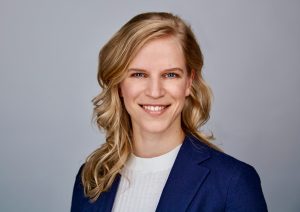PhD research Kristy Jansen: “Regulations regarding capital requirements play an important role in institutional investment choices”
Academics have a relatively good view on how individuals should invest over the life cycle. On the investment choices of pension funds however, very little is known. Kristy Jansen (Tilburg University) delved into the world of investment strategies, liabilities and risk preferences of pension funds for her PhD research. “Practice turned out to be more unruly than theory. With the help of data, we have gained more insight into how investment choices are made within the pension sector. ” This research was made possible by Instituut Gak.
 |
“The total assets of the Dutch pension sector amount to about 150% of the Dutch GDP. Surprisingly, there is little information available about their investment strategies. Since 1999, The Dutch Central Bank (DNB) has data on investments, returns, liabilities, fund composition and funding ratios of pension funds. This allowed us to gain insight into why pension funds and insurers make certain investment decisions.” |
Impact of illiquid investments
“The focus of my research was initially on illiquid assets, such as real estate, private equity and infrastructure. Over the past 20 years, there is an increased share of illiquid assets in institutional investors’ portfolios. Which aspects determine such an allocation to illiquid assets? And how does this relate to the short-term obligations of funds, such as pension payments? We have modeled the impact the degree and form of illiquid investments have on the fund. We show the mechanism of how expensive it could be for a pension fund if their capital is partly in illiquid assets. Obviously, a model is bound by limitations and assumptions. Practice is more unruly. In particular, the regulations regarding the capital requirements of funds play an important role in investment choices.”
Heterogeneity in investment choices
“Because there is a lot of heterogeneity within and between funds, in the second part of the study we looked beyond illiquid investments. Using a relatively simple model, we made a number of predictions with regard to investment choices. It appears that factors such as the age structure of the fund, short-term liabilities, risk preferences (and the level of mandatory equity capital) and the funding ratios, largely predict investment choices. Yet – even if you correct for these objective values - many differences remain between funds. Subjective values, which we refer to as “beliefs”, also largely determine the choices that funds and insurers make. The asset manager can play a role, but also political choices, for example.”
Explicit and transparent
“Political interests and choices – such as those relating to the actuarial interest rate – play a major role in investment choices, but sometimes have relatively small impact from an economic point of view. In addition to regulations, pension funds could therefor also take finance and economic theory into consideration. For illiquid assets, not much is yet included in the regulations. How do you deal with this as a fund in times of stress? Although in many cases funds consider this, it could be more explicitly included in investment strategies. Finally, I think that, given the heterogeneity in investment choices, the importance of transparent communication is also growing. There is no right or wrong and every investment choice could be well substantiated, but every choice has a potential impact on pension participants. That is precisely why you could also provide more insight into how choices are made.”
More information
Read the dissertation “Essays on Institutional Investors, Portfolio Choice, and Asset Prices”
Kristy’s promotion will take place on January 15 at 1:30 pm. View the live stream here.
About Kristy Jansen
In her research, Kristy Jansen focuses on investment choices made by institutional investors such as pension funds and insurance companies. During her PhD she traveled to the Wharton School of the University of Pennsylvania. Kristy is currently working within the Data Science Hub at De Nederlandsche Bank and in April she will start working for four months in the research department of the Bank for International Settlements in Basel to further deepen her research from an international perspective. In the future, she hopes to be able to continue to combine research with the policy side and the business community. For more information, visit www.kristyjansen.com


